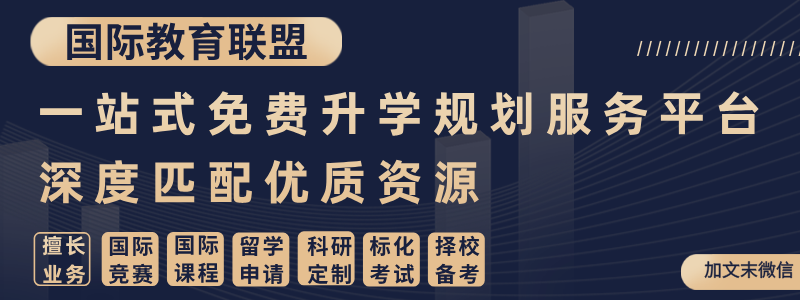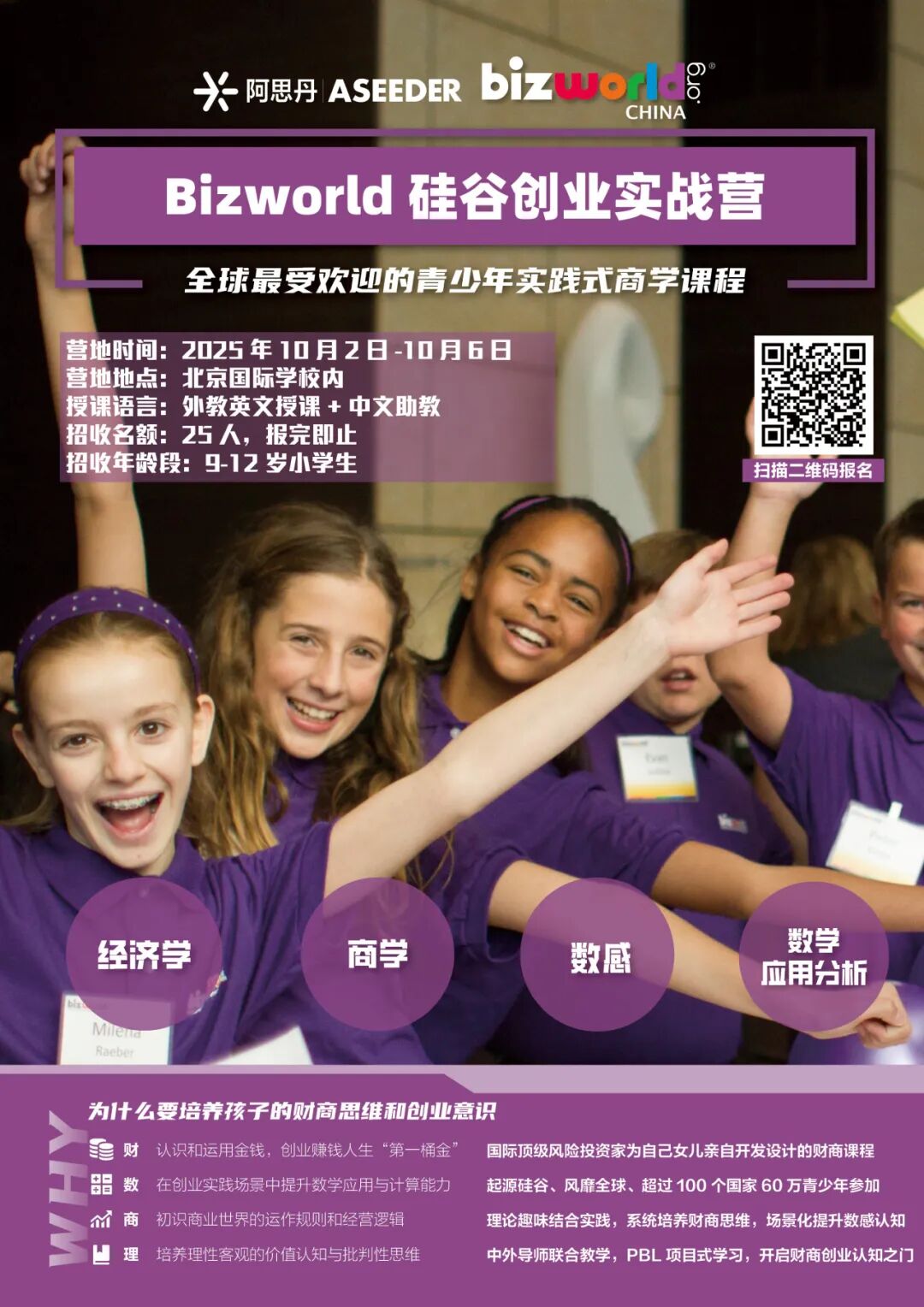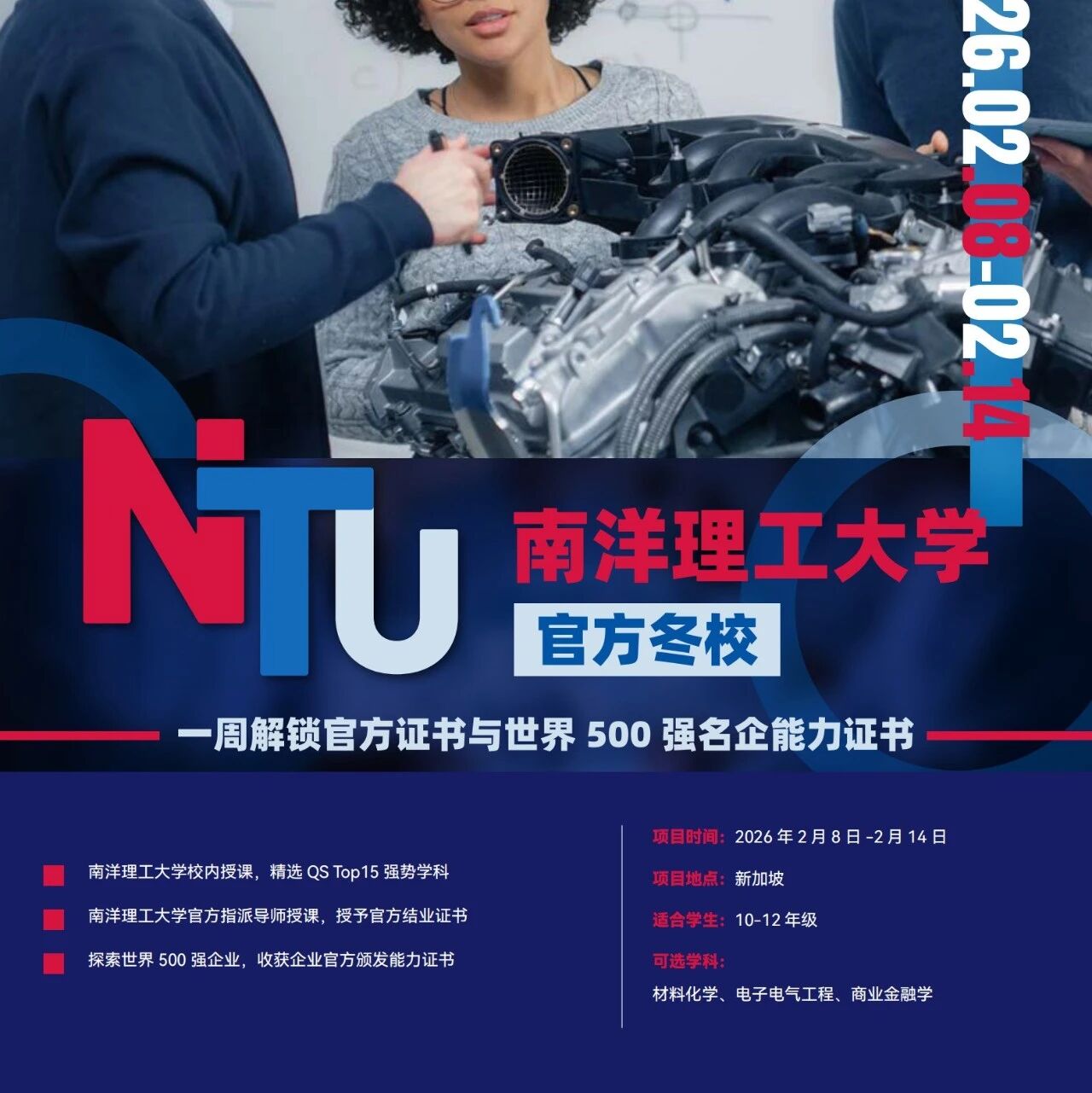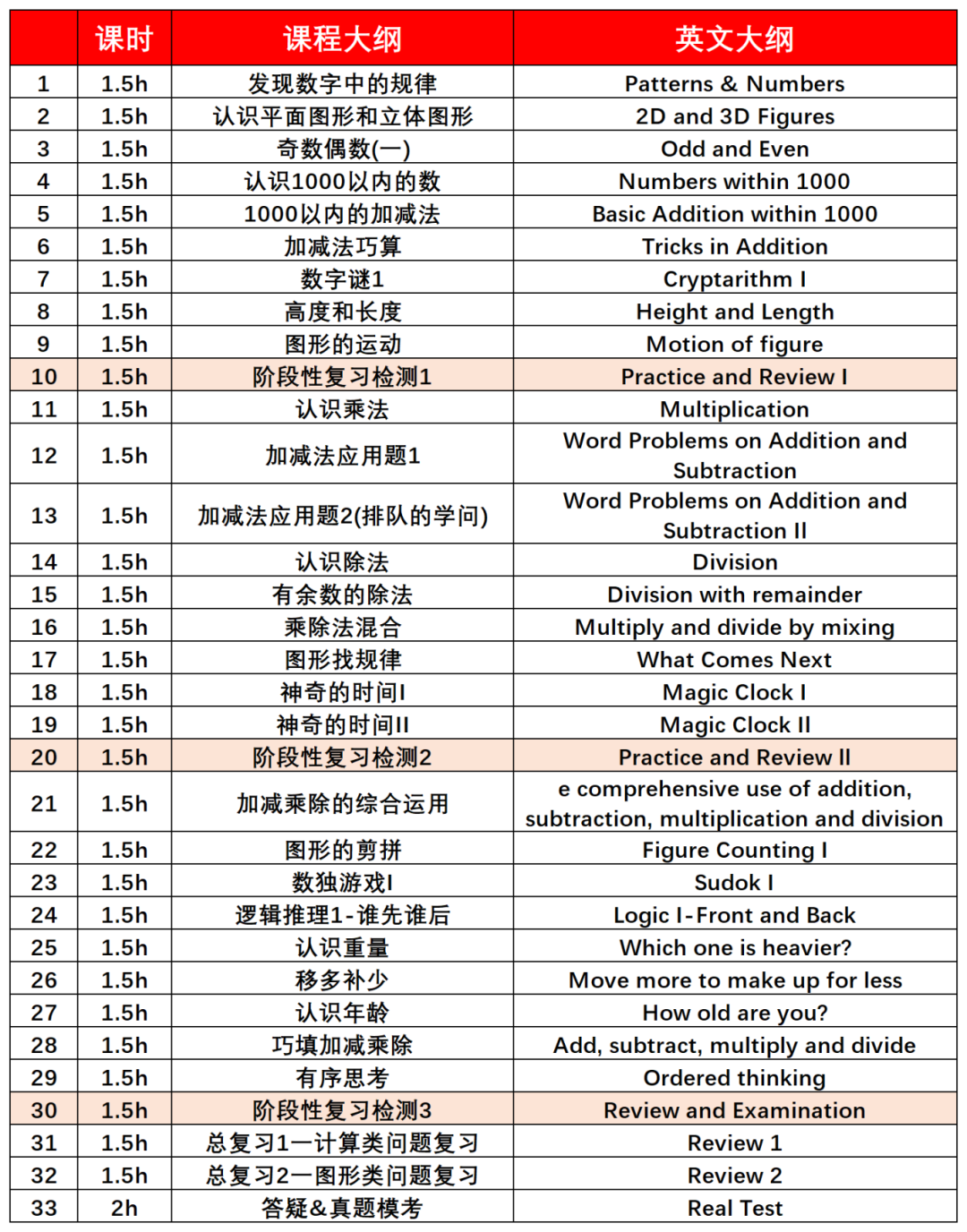WSC Weekly
2025世界学者杯
the World Scholar's Cup
@WSC小学者们!Jerry喊你来看
WSC Weekly专栏啦!
2025年度主题:重燃未来
Reigniting the Future
WSC Weekly专栏将精选最新话题内容
助力小学者准备世界学者杯!
让我们怀着
永恒的学术精神与信念
探索未来的无限可能吧!
锁定每周WSC Weekly
上期回顾&Quiz答案揭晓
在2025年世界学者杯第23期WSC Weekly栏目中,我们与小学者一起了解了音乐版权背后的奇妙规则。在上期的趣味Quiz中,你是否找到了正确答案?现在就让我们一起来揭晓吧!
歌手重录自己的歌,算盗版吗?
The Controversy Surrounding The Re-Recording Revolution
第23期Quiz答案揭晓:
Which of the following statements is true about the album 1989 (Taylor’s Version)?
以下哪项陈述关于专辑《1989 (Taylor’s Version)》是正确的?
A. It was Taylor Swift’s first re-recorded album. 它是泰勒·斯威夫特首张重新录制的专辑
B. Most of the revenue of the album went to Big Machine Records. 专辑的大部分收入归Big Machine唱片公司所有
C. The album was a copy of one previous album. 这张专辑是她先前某张专辑的复制品
D. Its publishing disadvantages future artist in terms of copyright control. 它的发行使未来艺术家在版权控制方面处于不利地位
E. It is more popular than the original version because of its variety of songs. 它因歌曲的多样性而比原版更受欢迎
正确答案:D
Key: D
2025年第24期
Weekly Intro
基因与大脑暗中左右你的选择,仿佛人生是排好的多米诺,一切早已注定。
如果有人能准确预测你下一秒的选择,这是否意味着自由意志并不存在?……本期Weekly将基于神经科学实验与哲学思辨,解读自由意志背后的科学争议与理论局限,一起来看看吧!
2025 No.24
命运决定了你会点开这篇推送?
Are all your choices determined?
自由意志VS决定论
你是否相信你是自主选择点开链接阅读了这篇文章,还是被某种未知的力量推动着这么做?甚至有人会说,你所做的一切在你出生那一刻就已经被决定了——由你的遗传信息决定。那么,我们真的拥有“自由意志”吗?还是我们的选择早已被那些我们无法控制的因素预先设定?这个古老的问题正是“自由意志与决定论”之争的核心。“自由意志(free will)”通常被理解为我们在没有外在强制下作出真实选择的能力;而“决定论(determinism)”则认为,世界上发生的一切(包括人类的行为)都是由先前的条件决定的。随着时间推移,思想家们提出了多种可能限制自由意志的决定论理论。以下将介绍两种主要类型的决定论理论:生物决定论(biological determinism)和因果决定论(causal determinism),了解它们的含义以及它们如何对自由意志构成挑战。
Do you really chose to click on the link and read this article, or maybe you were just pushed by some unknown forces. Someone might even tell you that everything you do is determined at the moment of your birth, by your genetic information.Do we truly have free will, or are our choices pre-written by factors beyond our control?This age-old question lies at the heart of the debate between free will and determinism.Free will is usually thought of as our ability to make genuine choices that are not imposed by outside forces, whereas determinism is the idea that everything that happens (including human actions) is determined by prior conditions.Over time, thinkers have proposed different forms of determinism that might constrain free will. This article will introduce two major forms – biological determinism and causal determinism – explaining what each one means and how each poses a challenge to the idea of free will.
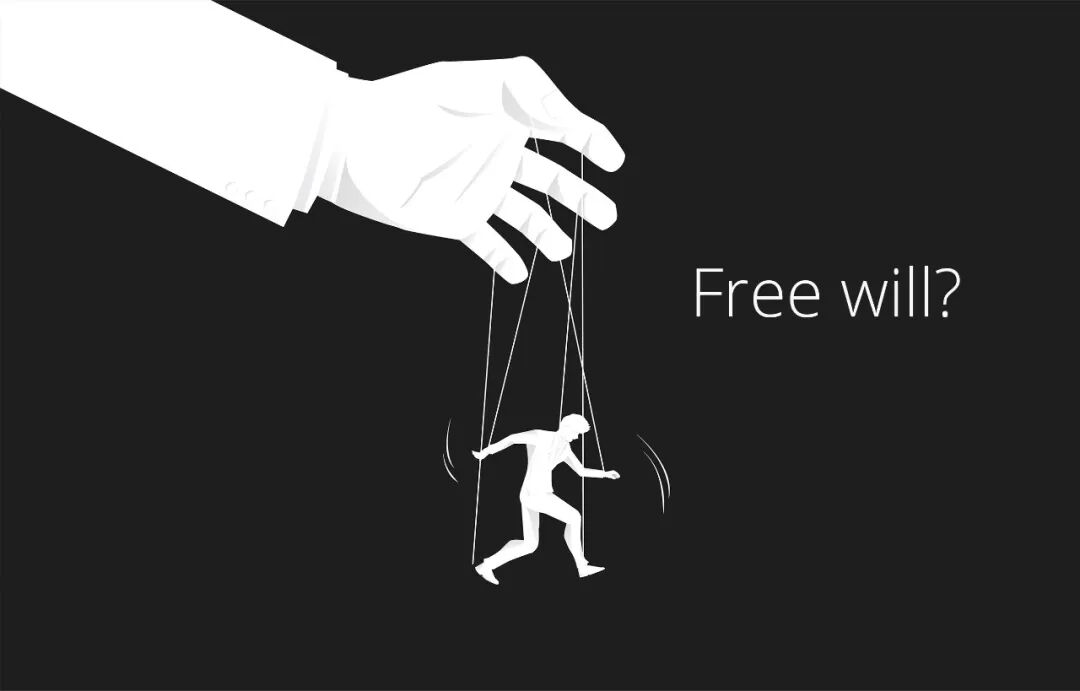
基因决定行为?
生物决定论(biological determinism)认为,人类的行为和性格很大程度上由我们的生物结构决定,包括基因组成、大脑结构、生物化学反应以及其他生理因素。如果生物决定论成立,那么我们的身份和行为很可能早已被“写进”我们的DNA或神经回路中,从而大大削弱了个人选择的空间。例如,某些基因变异或大脑化学结构可能会让一个人更倾向于冷静或易怒、内向或外向。严格的生物决定论者认为,这些天生的因素不可避免地驱动着我们的行为,就像计算机中运行的程序那样。
Biological determinism is the view that human behavior and character are largely fixed by our biology – our genetic endowment, brain structure, biochemistry, and other physiological factors.If biological determinism is true, then who we are and what we do might be “pre-written” in our DNA or neural circuits, leaving less room for personal choice. For example, certain gene variants or brain chemistry might predispose someone to be calm or aggressive, introverted or extroverted. According to a strict biological determinist, these innate factors inevitably drive our behavior, much like a program running in a computer.
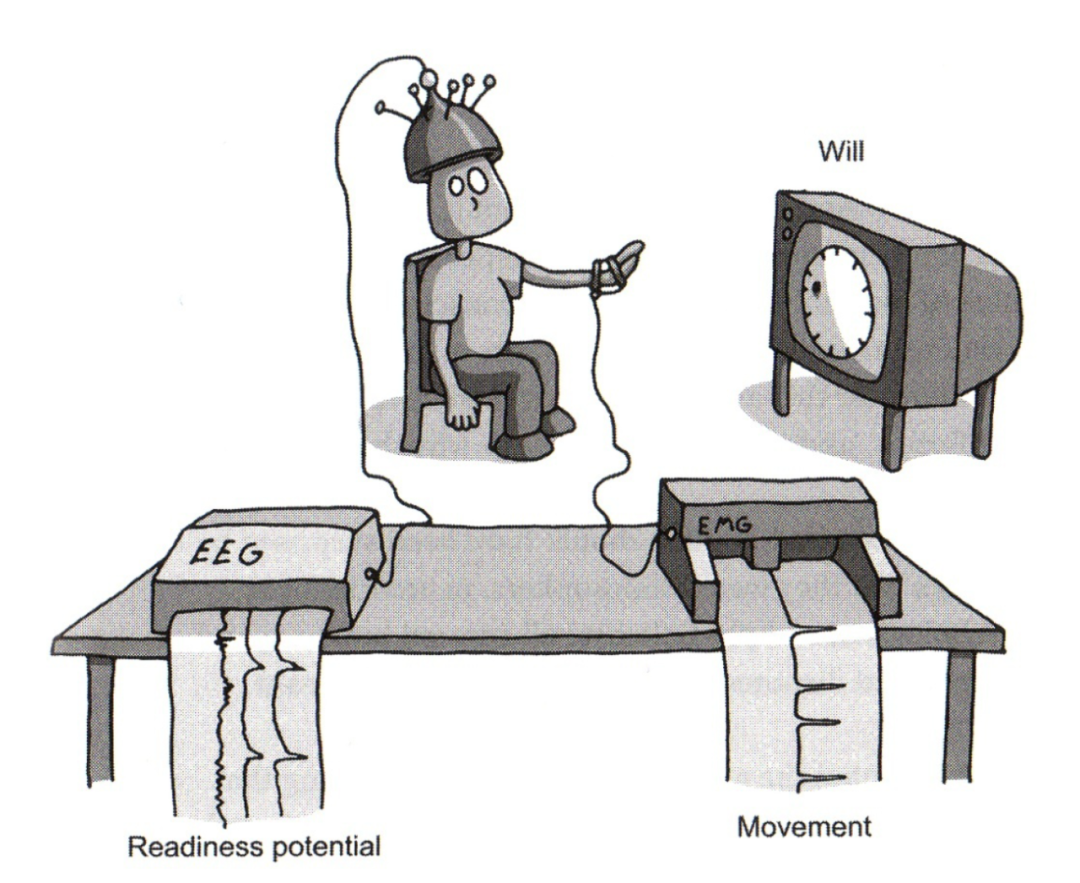
双胞胎与脑实验
遗传学和神经科学领域的研究为生物决定论提供了一定支持。双胞胎研究是一个经典例子。即便在不同环境中长大,同卵双胞胎(拥有100%相同基因)在智力、性格等方面的相似性通常也远高于异卵双胞胎(只共享约50%的基因)。此外,脑科学研究也提出了一些挑战我们“自由意志感”的发现。神经科学家本杰明·利贝特(Benjamin Libet)在1980年代的一项著名实验中发现,当人做出“移动手”的决定前,大脑已在几百毫秒前出现了一种“准备电位”(readiness potential)的活动。换句话说,大脑在你意识到自己做出决定之前就已经“做出了决定”,暗示我们所体验到的“自由选择”可能实际上是由无意识的生物过程驱动的。
Research in genetics and neuroscience provides some support for biological influences on behavior.Twin studies are a classic example. Identical twins (who share 100% the same genes) often show striking similarities in traits like intelligence and personality, even when raised apart, more so than fraternal twins (who share only ~50% of their genes).Likewise, brain research has found curious results that challenge our sense of free will. A famous experiment by neuroscientist Benjamin Libet in the 1980s discovered that the brain shows a spike in activity (a “readiness potential”) moments before a person consciously decides to move their hand.In other words, the brain “decided” before the mind was aware of the decision, hinting that what we experience as a free choice might actually be initiated by unconscious biological processes.
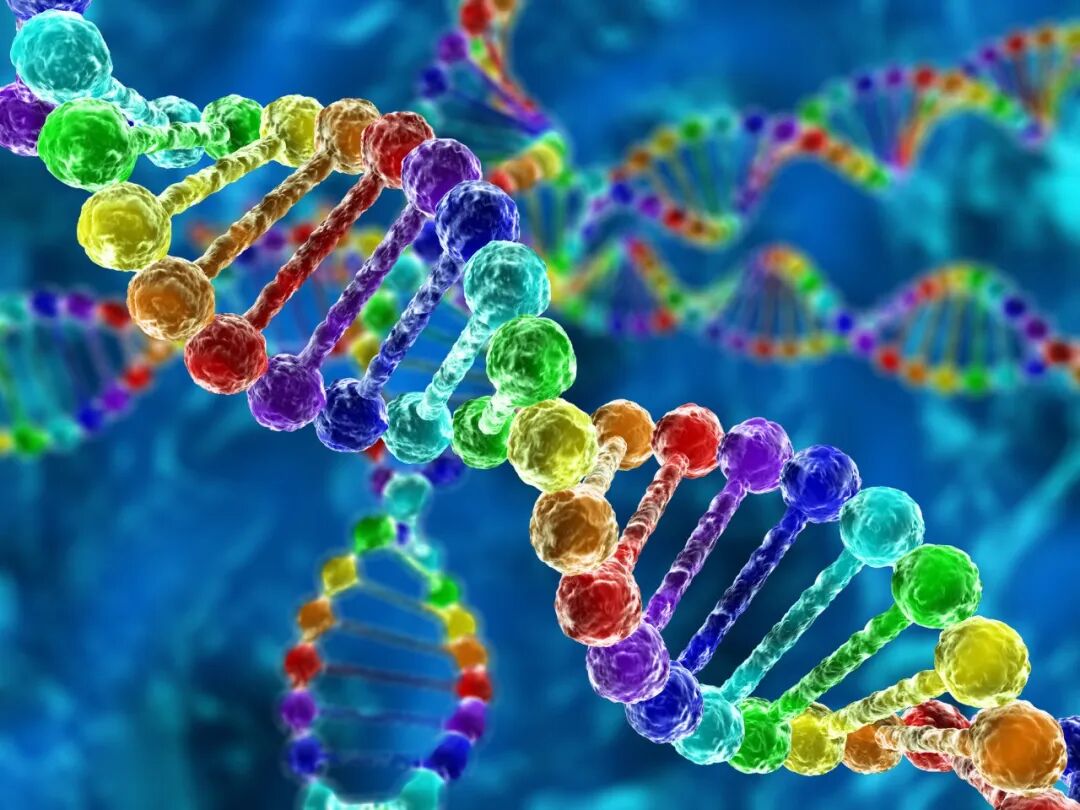
生物学非唯一决定因素
如果我们的所有行为、欲望和决定都被生物学固定,那么问题就来了:我们真的只是我们的基因和神经线路的产物吗?强硬的生物决定论者会说,甚至我们“感受到”自己在做选择,也不过是神经活动和基因表达的结果。在这种观点下,一个人的行为,小到晚餐吃什么,大到选择专业,甚至是犯罪行为,都早已由其遗传构成和体内化学机制决定了。但也有人反对严格的生物决定论。反对者指出,生物学不能决定命运。即使同卵双胞胎在许多方面相似,也从不完全相同。环境与个人经历同样会对他们产生影响。这说明,基因与环境相互作用,而不是基因单方面支配一切。今天大多数科学家普遍认为,虽然生物因素会带来某种倾向或限制(比如你无法训练猫说话,也无法让人类不依靠工具在水下呼吸),但个体如何响应环境仍具有多样性。
If all our behaviors, desires, and decisions are fixed by biology, it raises the question: Are we anything more than our genes and brain circuits? Hard-line biological determinism would say that even our sense of making choices is simply the product of neurons firing and genes expressing themselves. In this view, a person’s actions – from choosing a meal, picking a college major to committing a crime – were set in motion by hereditary makeup and biochemical influences they never chose.Critics of strict biological determinism, however, point out that biology is not destiny.For instance,even if identical twins share many traits, they are never exactly the same in every respect– environment and personal experiences also shape them, meaning there is an interplay of nature and nurture rather than genes absolutely dictating everything. Most scientists today recognize that while biology provides predispositions and limits (you can’t train a cat to talk or a person to breathe underwater unaided), individuals still respond in varied ways to their environment.
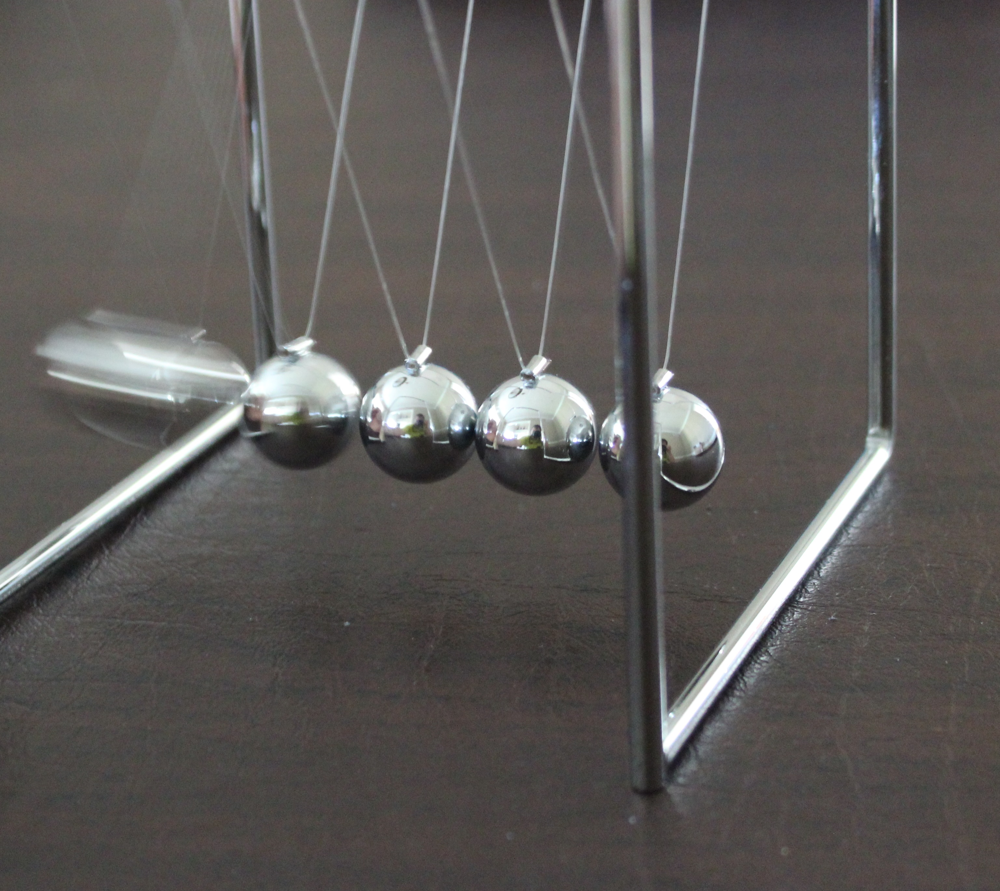
宇宙如同多米诺
因果决定论(causal determinism)(有时也叫“自然法则决定论”或“物理决定论”)认为,每一个事件都是由先前的条件和自然法则所必然导致的。简单来说,世界上的每件事都“有原因”,并且在相同的前提下,绝不会出现不同的结果。这是一种哲学观点,它认为宇宙就像一组巨大的多米诺骨牌,每一个“倒下”的事件都由之前的事件推动。在理论上,如果你能精确掌握宇宙中所有粒子的位置、速度以及它们所遵循的自然规律,那么你就能完美预测未来的一切。这显然对“自由意志”构成挑战。如果一切都无法脱离前因决定的路径,那人又怎能拥有“选择其他可能”的自由呢?在严格的因果决定论下,当你“选择”吃巧克力冰淇淋而不是香草味时,其实这个选择早就被设定在一连串从你出生前甚至更早的事件链中——可能包括你的童年经历(你曾偏好巧克力口味)、你的大脑结构,甚至最终追溯到宇宙诞生初期的初始条件。在这种极端观点下,人类对“有多个可能选项”的感觉只是一种幻觉。在某一时刻你所处的状态,决定了你只能做出那一个“选择”。这种立场被称为硬决定论(Hard Determinism),它认为决定论是真实的,因此自由意志根本不存在,我们只是以为自己有选择。
Causal determinism (sometimes called nomological or physical determinism) is the idea thatevery event is necessitated by preceding events and conditions together with the laws of nature.In plainer terms, everything happens for a reason – literally – and given the exact same prior conditions, nothing could happen differently. This is a philosophical way of saying the universe operates like an enormous set of dominoes: each fall (each event) is caused by the one before it. If you had complete knowledge of all the positions and speeds of particles in the universe and the laws governing them, you could (in theory) predict all future events with perfect accuracy. Causal determinism poses an obvious challenge to free will. If indeed nothing can occur other than what prior causes dictate, then how can anyone choose to do otherwise? Under strict causal determinism, when you “choose” chocolate ice cream over vanilla, that choice was in fact encoded in a chain of events stretching back perhaps to before you were born – maybe to your upbringing (preferring the taste of chocolate), and further back to the formation of your brain, and ultimately all the way back to the initial conditions of the universe. In this stark view, the feeling of open possibilities is an illusion; given the state of the world a moment ago, you could not have done otherwise. This position is known as hard determinism – the belief that determinism is true and therefore free will does not exist (our sense of making choices is illusory)
自由意志重定义
然而,并非所有人都同意因果决定论就彻底否定了自由意志。相容论者(Compatibilists)就主张,即使宇宙是决定性的,自由意志仍然可以存在,前提是我们重新定义“自由意志”。例如,有一种相容主义的观点认为:只要一个人的行为是出于自身的动机和愿望,而不是被外力强迫(比如被人拿枪逼迫),那这个行为就可以被视为“自由”的,即便这些动机本身有因果来源。换句话说,只要行为是由“你自己”的内在状态直接引起的,而非外界控制,它就具有道德意义上的自由。这种定义虽具争议,但显示出这一哲学辩论的复杂性和多样性。
However, not everyone agrees that causal determinism obliterates free will. Compatibilist philosophers argue that free will can exist even if the universe is deterministic – but we must define free will carefully.For example, one compatibilist idea is that free will means acting according to your own motives and desires without external coercion, even if those motives have deterministic causes.By this account, as long as you (your internal state) are the immediate cause of an action (and not, say, someone holding a gun to your head), the action can be considered “free” in the morally relevant sense, even if your internal state has a causal history. This redefinition is controversial, but it shows how nuanced the debate has become.
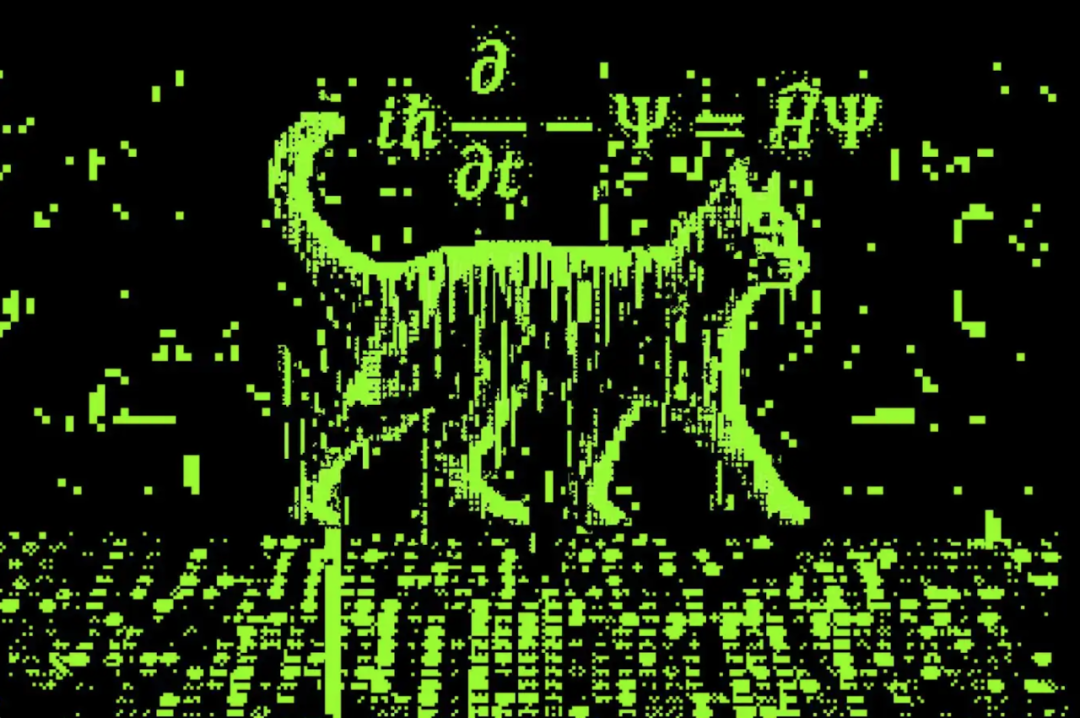
量子力学与自由意志
值得注意的是,现代科学在一定程度上软化了经典决定论的立场。20世纪初,量子物理理论的出现揭示,在亚原子层面,一些事件可能是根本无法准确预测的。根据某些量子力学的解释,宇宙中存在着内在的随机性与概率性。这意味着,宇宙可能并不是绝对决定论所描绘的那种完全可预测体系。例如,放射性原子以随机的时间间隔衰变,就是这种随机性的表现之一。但这是否意味着自由意志又重新有了可能?也不尽然,因为“随机”并不等于“自由”。如果一个结果是随机发生的,那它也不是由你控制的。也就是说,哪怕事件不是决定性的,也不是你“自主选择”的结果。所以,即使现代物理将宇宙从一个完全“齿轮驱动”的系统变成了一个略带模糊性的概率系统,关于自由意志的核心哲学问题依旧存在:如果我们的所有行为要么是由先决因素决定的,要么是由随机发生的,那我们的自主性到底在哪?这个问题的答案并没有得到定论,至今仍在哲学界、科学界和公众之间引发着激烈的讨论。
It’s worth noting that modern science has slightly softened the classical determinist picture. In the early 20th century, quantum physics revealed that at the subatomic level, events can be fundamentally unpredictable – there’s a built-in randomness or probability (according to many interpretations of quantum mechanics). This means the universe might not be strictly deterministic sense. Some scientists suggest that determinism in physics is not absolutely true (for instance, radioactive atoms decay at random intervals). Does this random indeterminacy reopen the door for free will?Not necessarily – randomness is not the same as a conscious choice. If an outcome is random, it’s uncontrolled, which doesn’t obviously give us control over our actions either.So even though physics has moved from a purely clockwork universe to one with a bit of probabilistic fuzziness, the core philosophical problem remains: if all our actions are either determined by prior causes or by chance, where is personal agency? This question continues to prompt lively discussion.
Weekly关键词 Key Words
determinism 决定论
free will 自由意志
biological determinism 生物决定论
causal determinism 因果决定论
compatibilists 相容论
所属话题
In Futurity, Someone Prophetic Sees
相关阅读
https://plato.stanford.edu/entries/determinism-causal/
Weekly FUN Quiz
相信现在你已经知道了自由意志与决定论之争及其挑战吧!那就快来参与本期Weekly FUN Quiz👇,告诉老师你的答案吧!
Quiz
Which of the following is not compatible with biological determinism?
以下哪一项与生物决定论不相容?
A. We can predict one’s career choice solely by their exposure to mentors and opportunities
我们可以仅根据一个人接触过的导师和机会预测其职业选择。
B. We can edit our genes to make ourselves resistant to some diseases.
我们可以编辑自己的基因,使自己对某些疾病具有抵抗力。
C. Your parents can know your high school grades at your birth.
你的父母在你出生时就能知道你未来的高中成绩。
D. We feel we are voluntarily motivated to help others.
我们感觉自己是出于自愿而帮助他人。
E. All rich people’s children will be rich.
富人的孩子将来都会变成富人。
To WSC Scholars:
本期Weekly Quiz正确答案将在专栏下期推文中揭晓!欢迎小学者们关注服务号,进入“WSC Weekly”专栏,此栏目将会持续陪伴小学者们,分享更多WSC趣味学术知识!


